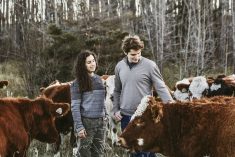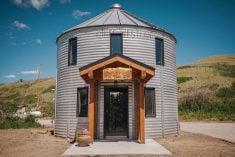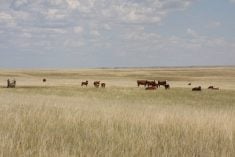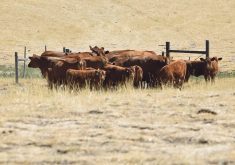Our farm is deeply personal to us. It is more than just where we work and where we live. This is our life’s work; our land and animals become our life’s masterpiece.
Taking care of the land, raising healthy animals and educating the next generation of stewards on our land will be our legacy. The pride that we have in seeing our pastures improve is measurable through the abundance of plant species, the thriving ecosystem of microscopic bugs right through to wildlife and healthy animals we raise.
Read Also

Deep cuts to ag research jeopardize Canada’s farming future
The huge cuts to ag research at Agriculture Canada are being widely panned by farm organizations, but there seems to be little hope of the government reversing its decision.
Our animals are our livelihood and their welfare is of utmost importance to us. Our lives are implicitly bound together; we each depend on each other for our well-being. The wonder of birth, watching them grow, the deep sadness when we lose one — we are emotionally tied to these animals and do our absolute best in raising them.
Food is extremely valuable to us. In a world of fast food, disposable income and throwaways, farmers know the true cost of producing real food and the hard work that went into producing every potato destined to become a french fry and every pound of beef in that Big Mac.
- More from the Alberta Farmer Express: Local food movement continues to soar
When we load our lambs for shipping, I have to look my future meal in the eye. For me to do that with good conscience, I honour that animal’s life by cooking wholesome meals that provide good nutrition for my family. I waste as little food as possible, knowing full well the hard work that myself or another farmer put into growing that vegetable, protein or grain.
Many farmers work two jobs to be able to put food on the table, literally. Reality is margins on farms are tight, capital costs are huge, and financing can be hard to come by. There are many variables outside our control: extremely cold winters, drought, rising feed costs, predators, market variability — these all can dramatically affect how we do financially. As a young farm, these fluctuations in cash flow drastically impact our farm’s viability. Working off farm provides cash flow throughout the year that may not be there just from farm income.
Local customers supporting local farms is essential to our existence. As a young startup farm, being able to sell our product direct to customers and set a stable price provides financial stability for our farm. Being able to meet your customers, hear the wonderful meals they are enjoying with your product and having them thank you for the safe, nutritious food you raised is a reward all in itself.
- More from the Alberta Farmer Express: Producers urged to tap into local food demand with ‘Explore Local’
Why do we farm? Thomas Edison said, “Opportunity is missed by most people because it is dressed in overalls and looks like work,” and nothing could be truer about farming.
There are few opportunities today where you can put in a full day’s work and physically see all you have accomplished. While we all yearn to make a difference, farming provides a unique opportunity to see first hand the changes you can make, even just on your small piece of the world.
The above article was originally published as ‘Seizing opportunity and making a difference,’ in the Oct. 27, 2014 edition of Alberta Farmer Express
Feeding the World, Caring for the Earth
To celebrate World Food Day on Oct. 16, the UN’s Food and Agriculture Organization invited farmers, ranchers, politicians, and experts to submit essays on its 2014 theme: Family Farming: Feeding the World, Caring for the Earth.
Contributors ranged from the well-known (Agriculture Minister Gerry Ritz, his U.S. counterpart Tom Vilsack, and Willie Nelson) to farmers from Nicaragua, Mexico, India and Ethiopia.
Among the four dozen contributors were two Alberta producers — Vicky Horn and Kelsey Beasley.
All of the essays can be found at worldfooddayusa.org














